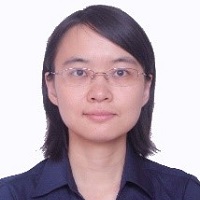Keynote Speakers

(Fellow, IEEE)
Prof. Yiu-Ming Cheung, Hong Kong Baptist University, Hong Kong, China
Yiu-ming Cheung is currently a Chair Professor (Artificial Intelligence) of the Department of Computer Science, Dean of Institute for Research and Continuing Education (IRACE), and Associate Director of Institute of Computational and Theoretical Studies in Hong Kong Baptist University (HKBU). He received PhD degree from Department of Computer Science and Engineering at The Chinese University of Hong Kong in 2000, and then joined the Department of Computer Science at HKBU in 2001. He is an IEEE Fellow, AAAS Fellow, IET Fellow, AAIA Fellow, and British Computer Society (BCS) Fellow. He is the Awardee of RGC Senior Research Fellow with receiving a fellowship grant of HK$7.8 million over a period of 60 months. Since 2019, he has been ranked the World’s Top 1% Most-cited Scientists in the field of Artificial Intelligence and Image Processing by Stanford University for six consecutive years. He was elected as a Distinguished Lecturer of IEEE Computational Intelligence Society in 2020, and named a Chair Professor of Changjiang Scholars Program by the Ministry of Education of the People’s Republic of China for the dedication and exceptional achievements in his academic career. Also, he is the Editor-in-Chief of IEEE Transactions on Emerging Topics in Computational Intelligence.

(Fellow, IEEE)
Prof. Liang Xiao, Xiamen University, China
Liang Xiao is IEEE Fellow and a Professor in the Department of Informatics and Communication Engineering, Xiamen University. She has served in several editorial roles, including an associate editor of IEEE Transactions on Information Forensics & Security, IEEE Transactions on Communication, IEEE Transactions on Wireless Communication and IEEE Transactions on Dependable and Secure Computing, and Guest Editor of IEEE Journal on Selected Topics in Signal Processing. Her research interests include wireless security, privacy protection, and wireless communications. She published three books and three book chapters. She won 2024 IEEE ComSoc Asia-Pacific Outstanding Paper Award, as well as the best paper award for 2017 IEEE ICC, 2018 IEEE ICCS and 2016 IEEE INFOCOM Bigsecurity WS. She was 2022-2023 IEEE ComSoc Distinguished Lecturer.



